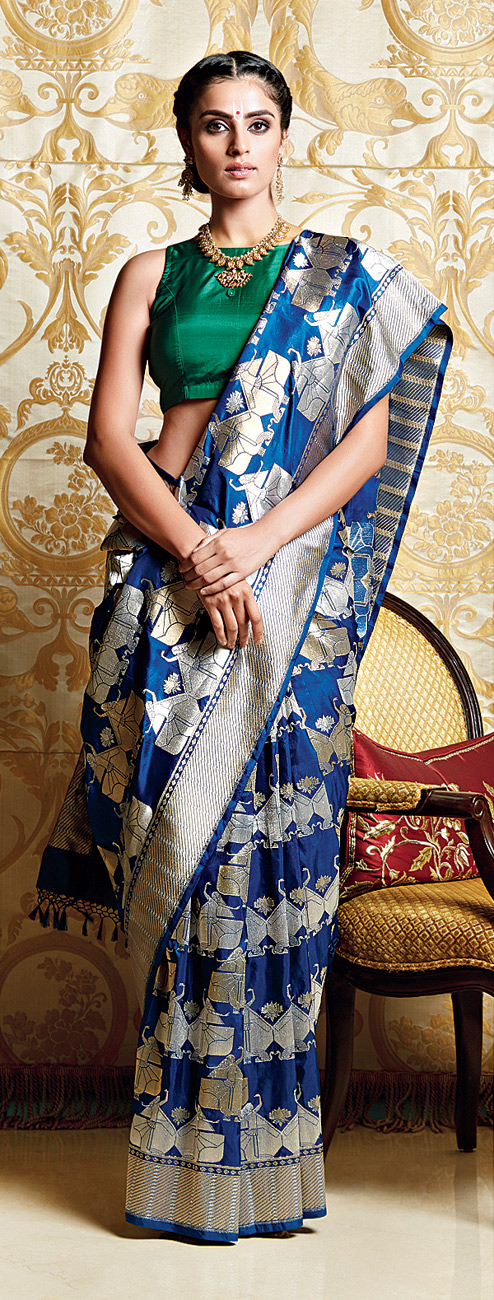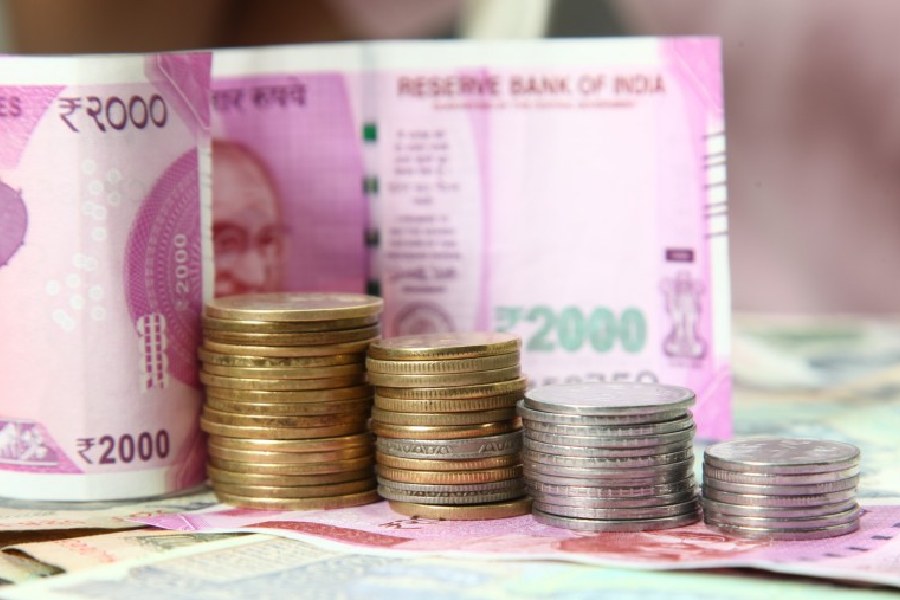
Ever thought of wearing a statement sari that plays canvas for modern-day motifs — some quirky, others artistic — like a double-decker bus, a yellow Ambassador taxi, Kathak dancers or your city’s iconic buildings?
Well, designers from different parts of India have looked for inspiration in their immediate surroundings rather than design collections built around traditional designs or computer-generated digital images. As a result, iconic symbols from India’s cities, scenes from everyday life in bustling metros and even Indian dance forms have been transposed into the warp and weft of the ever-popular six yards.
Bappaditya Biswas, a partner in the apparel store Byloom, set to work when he read newspaper articles on the possible closure of the Hindustan Motors factory near Calcutta that, for decades, was dedicated to manufacturing the iconic Ambassador car.


“The Hindustan Motors factory is one of the oldest in Bengal. I also read another news story that said that the yellow Ambassador taxis would eventually get replaced by radio cabs. So, as a tribute, I simply had to design saris with the yellow cab motifs,” says Biswas, owner of the sari brand, Bailou. Bailou saris are only available at the Byloom store in Calcutta.
While Bailou gets nostalgic about Calcutta’s yellow cab, designer Anavila Misra was inspired by Mumbai’s buildings and created a collection of linen saris depicting the city’s old architecture and its constantly changing landscape. Says Misra: “It’s a very personal decision when you have something to say and there’s a connect with the place you live in.” Misra’s collection — called Indigo Musing Mumbai — was created for Bungalow Eight, the concept fashion store in Mumbai.
The Maximum City also inspired Sanjay Garg of Raw Mango to launch a range of saris with geometric designs capturing Mumbai’s chaotic lifestyle and its skyscrapers.
Designers are using a variety of fabrics for these very unique, often limited edition, collections. There’s linen, cotton, georgette and Benarasi silks treated with techniques such as block-printing and pitlooms (a specialised weaving technique for Benarasi silks).
Many designers are turning to elements that are slowly vanishing from public spaces, Byloom’s Calcutta Prints collection is all about Calcutta symbols like the yellow taxis, double-decker buses, horse-drawn carriages and cycle-rickshaws. The saris are priced at Rs 1,700. “A buyer from London loved the double-decker design saying that it was global and could easily be worn in London,” Biswas says.

Currently Biswas of Bailou is busy designing a collection called Nagar Pakhi or City Bird which captures a series of common birds — the crow, owl, sparrow and shalik (the Indian Myna) — that appear to be vanishing from the cityscape.
Raw Mango’s Shaher collection captures Mumbai’s old architecture on Benarasi silk saris (tagged at Rs 19,000 and above). Designed by Hema Shroff Patel, the saris have tile-like motifs that are visible in several heritage buildings of Mumbai. “We don’t believe our designs need to be kitschy to be Indian. We adapt traditional designs and make them minimal, sophisticated and contemporary,” says Garg of Raw Mango.
Patel also designed saris with geometric lines capturing the busy and overwhelming life of Mumbai. “We did a lot of jaali work motifs inspired by the buildings in South Mumbai,” says Patel.
Anavila Misra was driven to these motifs as they seemed to surround her. “I couldn’t help noticing many old buildings and skyscrapers along the Colaba to Wankhede Stadium road,” Misra says. Her linen saris are priced between Rs 12,000 and Rs 25,000.
Indian dance forms meanwhile played muse for Himanshu Dogra, the founder of lifestyle designer store, The Play Clan, which offers apparel as well as home décor products. The Play Clan has just launched a new range of saris called Nritya in collaboration with Ekaya, the high-end store in Delhi famous for its handwoven Benarasis.
Nritya’s Benarasi saris capture different classical dance forms like Mohiniyattam, Odissi, Bharatnatyam, Kuchipudi and Kathak in silken weaves. Dogra says that these limited edition saris are handwoven using the pitloom technique which is very time-consuming. “These saris are for the modern woman who wants to celebrate her heritage,” he says. Priced upwards of Rs 25,000, the saris are available in Ekaya, The Play Clan stores in Delhi and on the brand’s website, theplayclan.com.
So, it’s time to wear your favourite city, Indian motif or dance form on — your sari.










